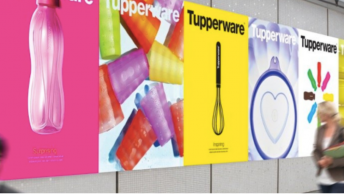Fake news is a real part of internet life. Have you thought about the consequences it could have on your brand? Taking a few steps right now can protect your brand from being caught in a fake news scandal.
Does Fake News Affect Your Brand?
Fake news has been getting a lot of attention since the 2016 election. It has existed for as long as news has been around, but it became a witch hunt for fake news after the election.
Fake news isn’t just for celebrities and politics though. It can affect your brand no matter what your business’s focus.
Truthiness in an Era of Fake News

Truthiness is the belief in what you feel to be true rather than what the facts will support. It is this feeling of truthiness that has taken over the fake news.
It is an unfortunate truth that fake news typically gets more interaction than real news.
In the final three months of the US presidential campaign, the top-performing fake election news stories on Facebook generated more engagement than the top stories from major news outlets such as the New York Times, Washington Post, Huffington Post, NBC News, and others, a BuzzFeed News analysis has found.
During these critical months of the campaign, 20 top-performing false election stories from hoax sites and hyperpartisan blogs generated 8,711,000 shares, reactions, and comments on Facebook.
Within the same time period, the 20 best-performing election stories from 19 major news websites generated a total of 7,367,000 shares, reactions, and comments on Facebook.
There is money to be made in fake news, causing many fake news sites to spring up. Thus, it is even more important to fact-check your content and make sure that you don’t get lumped into ‘truthiness’.
Fact-Check
Fact-checking is an important way to gain credibility. If your article is full of less than truthful statements, it will lose its credibility and the audience for your product.
Fact-checking will make sure that your brand’s reputation stays pristine, and also that you haven’t plagiarized. These issues can hurt your SEO and could even lead to a lawsuit.
Taking the time to fact-check can protect your brand and help you to reach your audience.
Adding Fact-Checking to Your Editorial Process
Fact-checking may seem like a waste of time and money, but this is not a corner you should cut. Avoid embarrassment and incidences of libel by including fact-checking in your editorial process.
Fact-checkers can find errors, clarify ideas, and avoid making any major mistakes in your content. Sending your content to a fact-checker should be the last step in your content creating process.
Once your content has been strategised and written, it should be sent over to your fact-checker to review the article for facts, resources, and claims.
You may have several different people performing these tasks, or you may just have one person doing it all, but regardless you should make sure that fact-checking gets its own specific step.
Your fact-checker will need to do the following to ensure that your work is top quality:
- Check it against multiple sources. The information that you include in your article will be more reliable if it comes from more than one source.
- Give Context. This tip is important to remember if you are providing statistics. Your content should not quote any numbers without having a clear and reliable source.
- Avoid Plagiarism. Even the best authors may have trouble occasionally with forgetting to cite the original author for the quotes or information they use. Your fact-checker will be able to find these issues and have your content writer go over their text again to find issues to rewrite or give credit to the original author.
- Leave it out. If your fact-checker can’t verify the information in your content, it’s best if it just gets left out. Replace the information you cut with new content that is accurate and verifiable.
These steps will make sure that your content is only full of accurate facts instead of inaccurate truthiness.
4 Ways to Avoid Fake News
The press can have an effect on your brand for good or bad. The same is true of fake news. It is hard to say just what fake news will want to say about your brand, but the odds are pretty good that they will end up saying something.
There are four great ways to ensure that your content stays away from fake news and only incorporates information that will build your brand’s reputation instead of taking away from it. Just remember above all to not freak out, and to do good work and then tell everyone else about what you’re doing.
1. Tell the Truth
With information being so accessible thanks to the internet, the truth always has a way of coming out. Being upfront about your brand, including its shortcomings in addition to its successes, will keep your brand’s reputation intact. Being honest about your brand will also make anything bad said about you look inaccurate.
If you are misquoted or misrepresented in the media, address it and move on. Your audience will believe you because you’ll have already built up their trust in you.
If fake news comes out about you, you will already have enough feelings of goodwill and integrity, that your base and most media outlets won’t believe it in the first place.
2. Know Your Audience
You need to study your audience to know where they get their information from. Most of the crazy inaccurate information that will come out about your brand will have originated in fringe media groups.
You’ll want to know where your audience gets their information from can help you to avoid being in a situation where they might find inaccurate information.
It will also be in your best interest to develop a relationship with the media outlets where your audience gains their information. Having a relationship with the media can help you to have a leg up in defending yourself against threats to your target audience.
This relationship will also help you to maximize any press coverage that your brand garners.
3. Create Brand Loyalty
If you can create brand loyalty, then your target audience will be less likely to believe the negative information they hear about you.
To generate brand loyalty, you’ll want to give your customers something to believe in. You can do this through the use of marketing, incentives, and even inclusivity.
It’s important to create an experience for your audience that will make them want to come back to your site over and over again.
Social media can be a great outlet for generating brand loyalty. Your brand can use social media in a positive and interactive way. Doing this will make sure that if negative press about your brand does surface, your audience is less likely to believe it.
Not only that, but your audience may even be willing to stick up for you online. They can work with you to help kill any negative press stemming from fake news.
4. Build a Reputation
When your audience searches for you on any given search engine, you’ll want positive results to be right in the forefront. Having so much available good, positive information will make people less likely to believe anything bad about you.
A great way to build your reputation is to ask for reviews from your customers. These reviews will need to be honest, but if you’ve been transparent about your brand already, this shouldn’t be an issue.
You can also partner with other companies to share more positive information about your online brand. Working with another brand will also open you (and the other brand) up to a new audience.
Getting creative with how you share your online content is a great idea, but always remember to be honest. Honesty alone will save you from a lot of trouble with fake news.
SEE ALSO: Monitor Your Digital Brand
Fake News Scenarios to Look Out For
These are the fake news problems that will show up consistently across different types of brands. Avoiding these problems will help you to avoid tangling your brand up in a fake news scandal.
- An attack on your reputation. Fake news on the internet may try to make you look less than honest.
- An error in your communication. There may be occasions where you will have published information that is inaccurate and media outlets will try to rake you over the coals for it.
- Your advertising makes you look bad. The type of advertising that you choose to do with your brand could make your audience doubt your brand or your honesty.
- An error in your assessment. You may have based some of your content on information that was part of fake news.
Final Thoughts
Fake news is a part of online life. Being prepared for it and doing everything in your power to avoid it being believable will help you to combat a fake news incident before it can even occur.
It is important to remember that honesty in your practices will go a long way in convincing your audience that you’re not what the fake news wants to make you out to be. Keep your brand real with your audience, and you’ll generate brand loyalty that will protect you from fake news.
Taking a contrarian view, how can fake news positively impact your brand?











